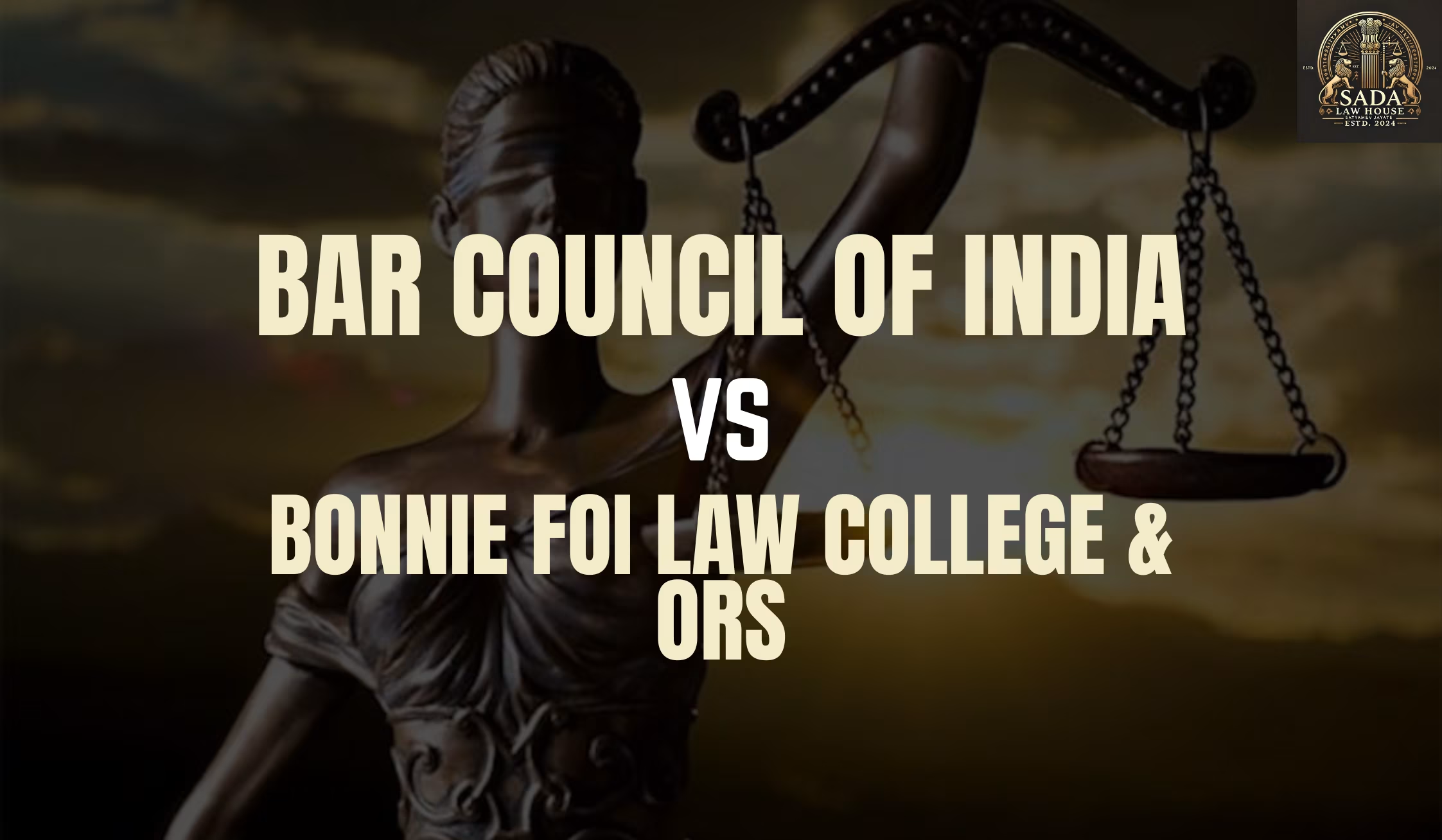Supreme Court Upholds Bar Council of India’s Power to Conduct AIBE; Overrules V. Sudeer Judgment
- REHA BHARGAV
- 19 June 2025

The Supreme Court of India affirms the Bar Council of India’s legal authority to mandate the All India Bar Examination (AIBE) for law graduates. This landmark 2023 ruling overrules the earlier V. Sudeer judgment and sets new standards for legal practice eligibility in India.
Introduction
The landmark Supreme Court case Bar Council of India v. Bonnie Foi Law College & Ors. decided on February 10, 2023, settled a long-standing debate regarding the All India Bar Examination (AIBE) and the regulatory powers of the Bar Council of India (BCI). The Court upheld the BCI’s authority to conduct the AIBE, making it a mandatory prerequisite for law graduates seeking to enroll as advocates and practice law across India.
Background: The AIBE and Its Controversy
In 2010, the BCI introduced the AIBE as a mandatory examination designed to assess the professional competence of law graduates before they could officially practice law. Several law colleges and graduates challenged this move, arguing that once a law degree was awarded, no further examination should be imposed. They claimed the BCI lacked statutory authority under the Advocates Act, 1961 to enforce such a test.
Key Issues in the Case
Does the Bar Council of India have the legal power under the Advocates Act to mandate the All India Bar Examination?
Does the AIBE infringe upon the rights of law graduates who have fulfilled academic qualifications?
Should the Supreme Court reconsider or overrule its earlier decision in V. Sudeer v. Bar Council of India (1999), which disallowed pre-enrollment exams or training?
What is the scope of BCI’s rule-making authority under Sections 7 and 49 of the Advocates Act regarding enrollment conditions?
Arguments Presented
Petitioners’ Standpoint
The repeal of Section 24(3)(d) of the Advocates Act removed BCI’s authority to impose additional pre-enrollment qualifications.
The 1999 V. Sudeer ruling invalidated such exams as ultra vires the Advocates Act.
The AIBE restricts the fundamental right to practice law after earning a law degree.
Legal education and university approval should suffice to grant enrollment eligibility without extra barriers.
Respondents’ Defense
BCI derives its authority from Section 49(1)(ag) to regulate legal education and professional competence.
The AIBE acts as a quality control measure ensuring only competent law graduates enter the profession.
The V. Sudeer case concerned training, not qualifying examinations, making AIBE a distinct and valid requirement.
Regulatory oversight is necessary due to the rise of substandard law colleges.
Reasonable restrictions like AIBE comply with constitutional provisions protecting public interest.
Supreme Court’s Judgment
The Supreme Court ruled in favor of the Bar Council of India, affirming that the AIBE is a constitutionally valid and necessary condition for enrollment as an advocate. The Court:
Overruled the earlier V. Sudeer v. BCI (1999) judgment, emphasizing evolving educational standards.
Confirmed BCI’s authority under Sections 7 and 49 of the Advocates Act to set minimum competence standards.
Declared the AIBE a reasonable restriction under Article 19(6) of the Constitution of India, ensuring public confidence in the legal profession.
Highlighted the importance of maintaining professional integrity amidst the proliferation of substandard legal education institutions.
Conclusion
The Supreme Court’s decision marks a significant turning point in legal education and professional regulation in India. The Bar Council of India’s power to mandate the All India Bar Examination is legally upheld, reinforcing quality and competence in the legal profession. Law graduates must now clear the AIBE to gain enrollment and practice rights, ensuring only qualified advocates serve the Indian legal system.
Case Laws






